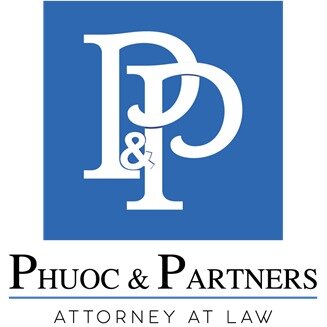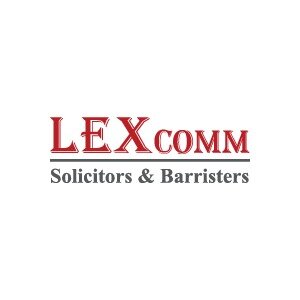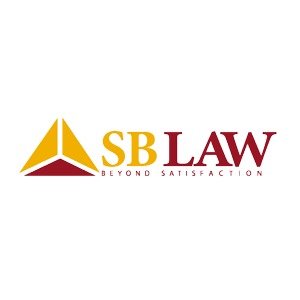Best Creditor Lawyers in Hanoi
Share your needs with us, get contacted by law firms.
Free. Takes 2 min.
List of the best lawyers in Hanoi, Vietnam
About Creditor Law in Hanoi, Vietnam
Creditor law in Hanoi, Vietnam, encompasses the regulations and legal proceedings that protect the rights of creditors-individuals or entities that are owed debt by others (debtors). In Vietnam, creditor rights are governed both by civil legislation and by specific laws that pertain to commercial transactions and insolvency proceedings. The legal system provides creditors with mechanisms to claim and recover debts, including contract enforcement, collateral seizure, and bankruptcy processes. Being a civil law jurisdiction, the laws are codified and should be consulted for specific provisions.
Why You May Need a Lawyer
There are several common situations where you may require legal help as a creditor in Hanoi, Vietnam. These include drafting or reviewing loan agreements, navigating the process of securing a debt, handling disputes over contractual obligations, and undertaking debt recovery proceedings. If a debtor defaults, a lawyer can advise on the applicable legal remedies, including initiating insolvency proceedings or negotiating debt restructuring. Furthermore, a lawyer can assist in enforcing foreign judgments or arbitral awards against debtors located in Vietnam.
Local Laws Overview
The key aspects of local laws relevant to creditors in Hanoi, Vietnam, include provisions from the Civil Code, the Law on Enterprises, and the Law on Bankruptcy. These laws set out the rights and obligations of creditors and debtors, and regulate the procedures for resolving insolvency issues. Secured transactions are also governed by specific laws, where creditors holding collateral have preferred rights in case of a debtor's default. It's worth noting that Vietnam also has regulations on dealing with bad debts in the banking system, and the Vietnamese government continually updates these frameworks to improve the business environment and protect creditors.
Frequently Asked Questions
1. What are my first steps in recovering a debt?
To recover a debt, it is advisable first to attempt to communicate with the debtor to request payment. If this is unsuccessful, you can send a formal demand letter. As a next step, you might want to engage a lawyer who can help you initiate legal proceedings if necessary.
2. Can I charge interest on overdue debts?
Yes, creditors can charge interest on overdue debts, but the rate should be agreed upon in the contract, and it should comply with the maximum interest rates stipulated by Vietnamese law.
3. What legal documents should I have to support my claim as a creditor?
You should have a written contract, promissory notes, or other forms of acknowledgment of debt that provide evidence of the debtor's obligation. Additionally, transaction records, invoices, and any communication regarding the debt may be helpful.
4. Is there a statute of limitations for debt collection?
Yes, the Civil Code of Vietnam provides a statute of limitations for debt collection, usually three years from the date the obligation is due. However, it is important to check for specific cases, as some debts might have different limitation periods.
5. How do I enforce a foreign judgement concerning a debt?
Enforcing a foreign judgment in Vietnam typically involves applying for recognition and enforcement at a competent Vietnamese court. Legal procedures may be complex, and it is recommended to seek the assistance of a lawyer familiar with international law and Vietnamese legal procedures.
6. Can personal property be seized in debt recovery?
Under Vietnamese law, the seizure of personal property may be permitted, but it is subject to court procedures, and certain assets may be exempted. Legal advice is key in such cases.
7. How are secured creditors treated in bankruptcy proceedings?
Secured creditors have a higher priority over unsecured creditors in bankruptcy proceedings, and they may have the right to be paid out of the proceeds from the sale of the collateral that secures their debt.
8. What is the process for declaring a company bankrupt?
The process involves filing a petition to a competent court where evidence of insolvency will be examined. If the company is deemed insolvent, the court will initiate bankruptcy proceedings according to the Law on Bankruptcy.
9. Can a debtor negotiate for debt restructuring?
Yes, debt restructuring negotiations are a common practice and can be an alternative to legal proceedings. Creditors and debtors can reach an agreement on revised payment terms that may provide relief to the debtor while allowing the creditor to recover their funds over time.
10. Are there any legal protections for creditors against fraudulent transfers by debtors?
Yes, Vietnamese law includes provisions that can protect creditors against fraudulent transfers intended to evade debt obligations. If such transfer is suspected, a lawyer can help take appropriate legal action.
Additional Resources
For those in need of legal advice on creditor rights and debt recovery in Hanoi, consulting resources such as the Ministry of Justice, the Vietnam International Arbitration Centre (VIAC), and the Vietnam Banks Association could be valuable. Additionally, there are various legal service firms and debt recovery agencies operating in Hanoi that specialize in creditor law.
Next Steps
If you need legal assistance in matters related to creditor law in Hanoi, Vietnam, the recommended next steps are to gather all relevant documentation regarding your claim and to consult with a local lawyer who specializes in debt recovery and creditor's rights. A qualified attorney can guide you through the process, represent you in negotiations or court proceedings, and help ensure that your rights as a creditor are protected and enforced.
Lawzana helps you find the best lawyers and law firms in Hanoi through a curated and pre-screened list of qualified legal professionals. Our platform offers rankings and detailed profiles of attorneys and law firms, allowing you to compare based on practice areas, including Creditor, experience, and client feedback.
Each profile includes a description of the firm's areas of practice, client reviews, team members and partners, year of establishment, spoken languages, office locations, contact information, social media presence, and any published articles or resources. Most firms on our platform speak English and are experienced in both local and international legal matters.
Get a quote from top-rated law firms in Hanoi, Vietnam — quickly, securely, and without unnecessary hassle.
Disclaimer:
The information provided on this page is for general informational purposes only and does not constitute legal advice. While we strive to ensure the accuracy and relevance of the content, legal information may change over time, and interpretations of the law can vary. You should always consult with a qualified legal professional for advice specific to your situation.
We disclaim all liability for actions taken or not taken based on the content of this page. If you believe any information is incorrect or outdated, please contact us, and we will review and update it where appropriate.













